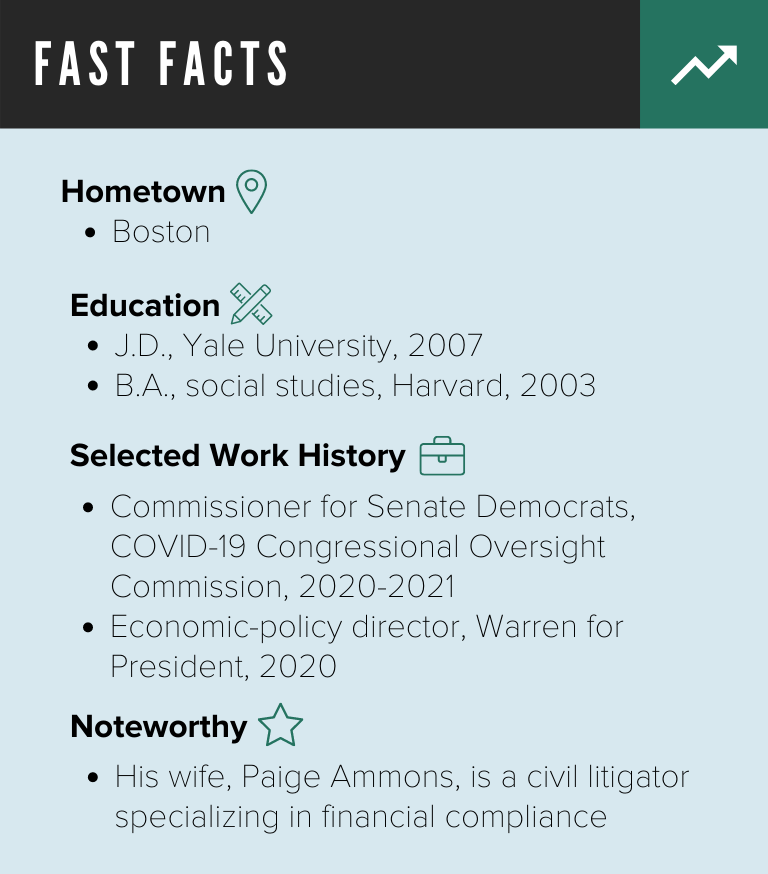Deputy Director for the National Economic Council
Fast Facts

Worker’s Protection Watchdog

LEARN MORE
Vignette, a service through National Journal Research, is an essential tool for government affairs teams that need to understand the people behind the policies.
Click here to request a demo of the Vignette database, or email njvignette@nationaljournal.com to speak to someone about your access.
During the 2020 primary season, Sen. Elizabeth Warren often occupied one of the center lecterns next to Joe Biden. But the ideological ground she occupied was very different.
No matter; less than a year later, Bharat Ramamurti, a former top economic staffer to Warren, has found himself in a key role in Biden’s National Economic Council, crafting economic-recovery policy.
The Harvard- and Yale-educated lawyer, who’s also served as managing director at the Roosevelt Institute, got into politics under Warren in 2013 as senior counsel for banking and economic policy. Sharing the senator’s progressive approach to policy, Ramamurti drafted many of Warren’s economic reforms aimed at empowering low-income Americans. During the 2020 contest, he helped write her campaign’s economic platform.
Senate Democrats tapped Ramamurti to serve on the COVID-19 Congressional Oversight Commission, where he applied his skepticism of large private institutions, advocating oversight of economic-relief efforts and urging that CARES Act loans be granted on a legal basis.
At the NEC, he has a particular focus on drafting economic-relief efforts for businesses and banks while offering protections to consumers. He’s also been instrumental in hammering out the specifics of the infrastructure package.
Approach and Motivations
Excerpted from Bharat‘s Vignette profile
Shares Sen. Elizabeth Warren’s progressive approach to substantial economic reforms; prioritizes legislative efforts based on worker protections, opportunities to address racial disparities, and public popularity
- Seeks to lessen the wealth gap through policies such as a wealth tax, more-progressive income taxes, and the partial cancellation of student debt
- Has referred to the Dow Jones as “the least of our worries” and shares the “Main Street over Wall Street” approach taken by many Biden officials that prioritizes indicators of economic health, like wage growth, over market indicators in the policy process
- Mirrors Warren’s signature skepticism of large private institutions and their role in government; on the COVID-19 Congressional Oversight Commission, he investigated several instances of “shaky” bases for loans issued by the Treasury secretary through the CARES Act, hinting that favoritism may have been applied for some large businesses that received special funding, including a trucking company that was deemed vital to national security
- Evaluates policy based on polling on what is popular with constituents; grounded his advocacy for a $15 minimum wage, student-debt cancellation, and climate action by citing majority public support, and is likely to bring that mind-set to the NEC in offering advice for future platforms
Not a Vignette subscriber? You can purchase a digital book with in-depth profiles on everyone featured in this special report.
To learn more about Vignette, or see the platform in action, request a demo here.

